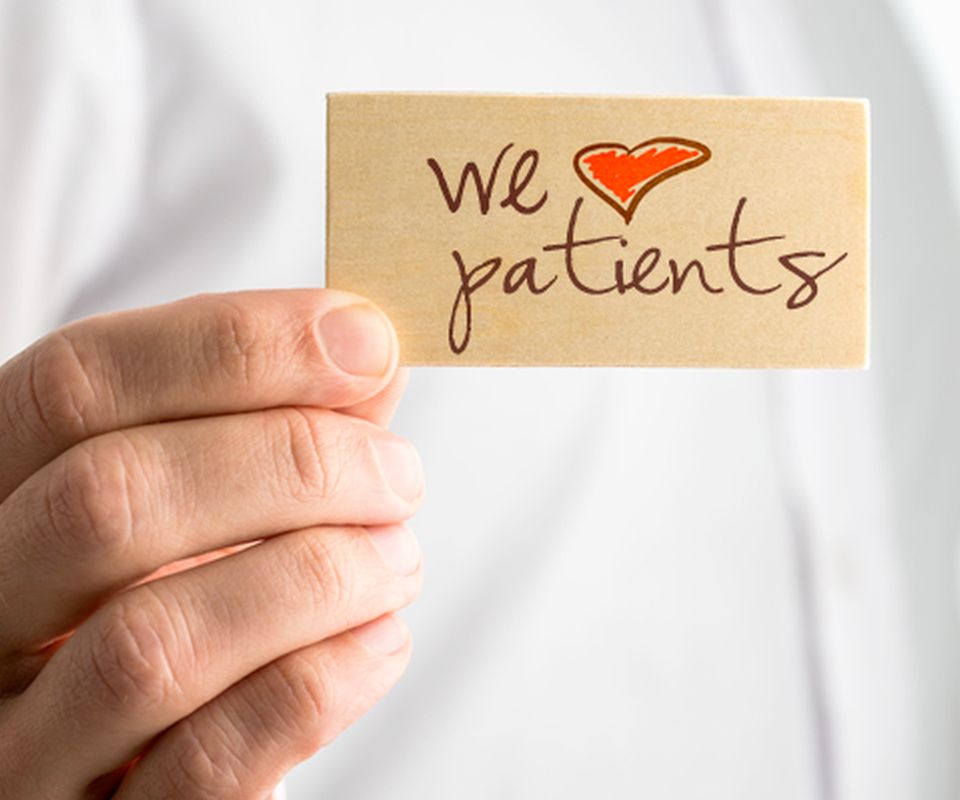How important is the patient experience in today’s healthcare environment?
It’s huge. There’s lots of change in healthcare as we know well and it’s changed for the better overall.
But as we deal with the effects of tremendous medical progress, aging of our population and economic challenges, we have a perfect storm of good things that create pressure for change.
It means we have to ask: what are we trying to do in healthcare?
Clearly because of all the frailty of our aging population and the incredible amount of things we can do and limited resources, that question of what are we trying to do, has become something that has to be addressed.
We just can’t keep doing more and more and assuming it’s all good.
We’re trying to meet patients’ needs, and among their needs is peace of mind that things are as good as they can be.
Among their needs is to minimize the fear that they have, minimize the anguish that they have, preventable anguish from confusion and chaos.
Patient experience defines what we’re trying to accomplish.
How does the patient experience impact patient outcomes?
Patients want a good experience. It’s not about something as simple as waiting time.
It’s about how they feel. Do they feel peace of mind? Do they feel like everyone is doing all they can for them and working well together?
These are the big drivers of patient’s likelihood to recommend. Do patients feel the teamwork is good, the communication is good, the empathy is real?
The reason is because these are outcomes. Mortality is the most important outcome if you’re about to have cardiac surgery.
But the truth is, mortality has really limited value as an outcome measure in healthcare for two reasons.
Number one, none of us are going to live forever, so that not preventing mortality doesn’t necessarily mean failure of healthcare.
And the second reason is that a whole lot of healthcare, we do things not to prevent death but to try to help people feel better.
In life we’re never going to restore patients to perfect health, but we want to give them peace of mind, that they are as healthy as they can be given the cards that they’ve been dealt.
So that peace of mind is in fact an outcome.

The key thing is that physicians have this suspicion that there’s conflict between patient experience and the performance measures they think of as real quality.
And business people in healthcare sometimes have a concern that there is a tension between patient experience and financial performance.
There is actually alignment that health structures that have better patient experience, also have better technical quality, they have better safety records, and they also have better engagement of data from their doctors, nurses, and other employees.
By engagement we mean how they feel about working where they work. Are they happy there? Will they stay there?
You know regardless of where you are, if you are getting better, that is good business and it’s also good for patient care.
If a doctor or health organization wants to improve their patient experience, how can they do that? Where do they start?
If you measure things you’ve got a chance at improving them, and if you don’t measure things, there’s a very good chance that they won’t improve.
We’re moving into a world where it’s not about quality assurance, it’s about quality improvement.
Quality assurance is you just want to make sure that something terrible is not going on.
Quality improvement is where no matter where you are, you’re trying to get better. And if you’re trying to get better, then you don’t just measure samples of patients, you try to get data from everyone.
That takes you down a road where you start sampling electronically rather than using telephone or paper, because it’s just too expensive.
But then what do you do with the data and which data are most useful? The comments are really even more compelling than the numbers.
Using transparency, put the comments out there on the internet. Like if you Google a doctor, and if you scroll down that page you’ll see all the comments from his patients.
There was a new comment up there from someone who went into great detail about the things he is doing that the patient likes.
That was good for him in that it makes him realize he should do those things all the time.

But that’s like a more tactical aspect of the bigger thing that you would bring up, which is the real goal has to be culture change—trying to be highly reliable about delivering care, the way we think it should be delivered.
So it’s reliably empathic, reliably safe, you know doing no harm, reliably coordinated, and technically excellent. Increasingly, your colleagues and you are realizing these things are integrated.
Patient experience isn’t just one thing. It’s part of a package that organizations have to pursue.
What happens if a practice or an health organization doesn’t embrace the changes that are sweeping through healthcare? What are the consequences?
On a very short-term basis, they may feel like, “Well, at least we don’t have to disrupt ourselves.
We can come to work and we know what we’re going to do and we know how we’re going to do it.” So there’s a sort of peace of mind on a very short-term basis.
There’s probably nervousness, “Am I missing the boat?”
But you know on a medium-term basis, and we don’t think we’re talking about a decade, we’re talking about two, three, four years, there is a real risk of business performance suffering, because patients are going to move to get care where their needs are being met.
We mean there is a generational change afoot and the younger people are not as loyal to brand as older people are.
Younger people tend to be healthier, so they’re not dominating and filling the office yet. But the baby boomers they’re adapting.
They’re not behaving like their parents. They are looking online and reading about the doctors where they are getting care and even after they pick the doctor, they keep going back and reading the doctor’s comments.
That’s one of the interesting insights is that patients aren’t just using data to pick physicians, but they’re looking online; it’s like a relationship-management tool, something akin to Facebook more than Yelp.
Physicians ought to be worried about the business implications. But then, the more important thing is their own morale, their own burnout issues.
What lifts doctors and nurses and others in the long run is feeling proud of their work and feeling like they’re really meeting patients’ needs and that’s what sustains them.
When you look at the comments from patients about you, it also helps you understand, OK, these are things you should be darn sure you do reliably.
And this is the kind of thing that keeps you from getting burned out. It’s feedback and if you do a good job, it’s positive feedback.
In the past, physicians may have felt like being a great doctor is all they needed to do.
But you are saying there is more to it now, and doctors that aren’t cognizant of that are going to lose patients and possibly go out of business.
Whenever you ask physicians and other healthcare providers about instances where the care made you proud, you never get them bringing up instances where it was because they did something that was really, really new in the way of treatment techniques.
The technical advances, the new drugs, new procedures, that stuff is cool and they never bring that up.
What they always bring up is old fashioned stuff about they work together, they’re really timely and they really met a patient’s psychological needs.
The values that come out are really old school values.
But then how do you deliver old school values in the world we live in with very complex care with many people involved? That’s a lot of the real work that we have to do in healthcare.


